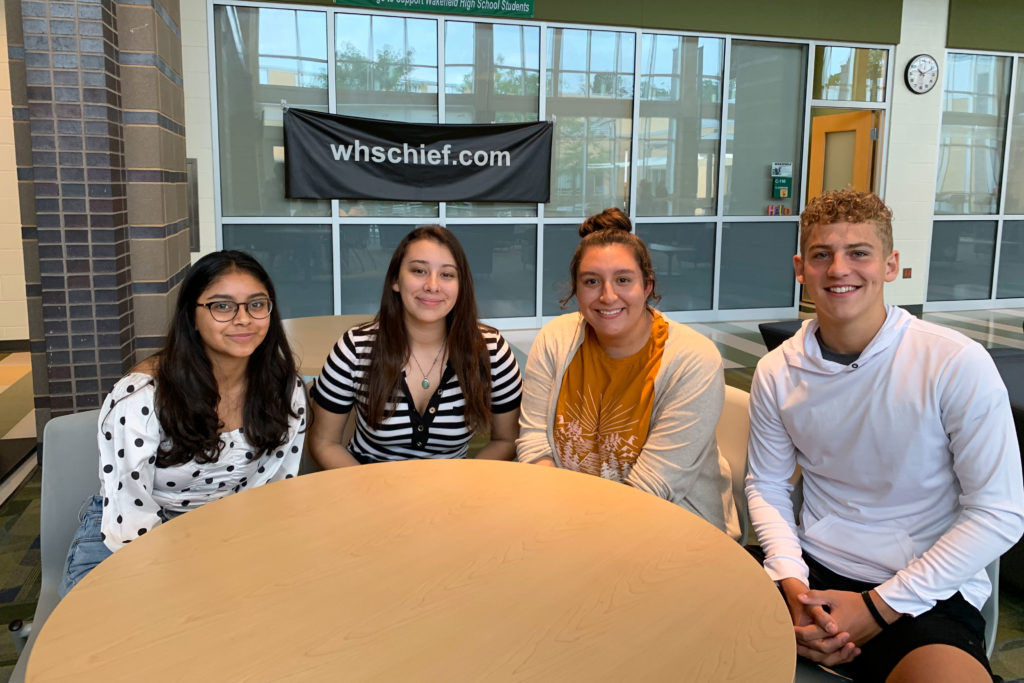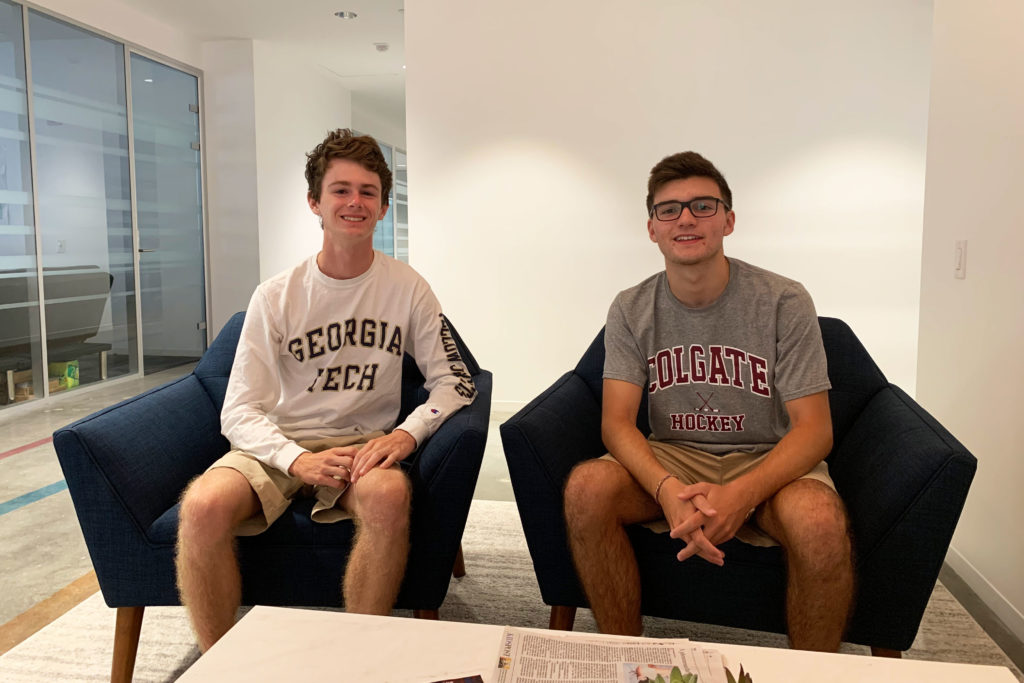(Updated at 11:10 a.m.) The achievement gap, overcrowding, an obnoxious name change debate: there’s a lot on the minds of Arlington’s high school students.
Though a few issues tie all of the schools together, the editors of the student newspapers at Yorktown, Wakefield and Washington-Liberty also said there were certain features that make the schools — and the student coverage — unique. The editors shared the inside stories of life for local students.
United by Overcrowding
Across all three of the schools, all of the editorial teams agreed that overcrowding — thanks to an ever rising student population — was one of the biggest problems.
“It’s especially an issue this year,” said Charlie Finn, one of the head editors of the Yorktown Sentry. “We already have overcrowding and the main problem is crowded classrooms.”
Finn and Joseph Ramos, Yorktown Sentry’s other head editor, noted that the Sentry has worked on reporting overcrowding from within the school. Articles from the Yorktown Sentry detail the challenges students face in overcrowded schools and review proposed solutions.
At Washington-Liberty, the school is so crowded the interview with the students had to be held in a corner of a hallway already packed with students eating or doing work.
“I do think overcrowding is an issue,” said Abby, head editor for the Crossed Sabres, the student newspaper of W-L. At the teacher’s request, interviews with Washington-Liberty students use first names only.
“I’m in an English class with 38 people,” Abby said. “Schedules are being changed to deal with the numbers of students, especially in the [International Baccalaureate] program.”
At the Wakefield Chieftain, editor Carla Barefoot said students learned this year that pep rallies would be held outside rather than inside because the gym can’t fit the entire student body.
But each school also said there are also issues central to each school’s community they’re working to cover.
Yorktown: Investigating the Achievement Gap
At Yorktown, Ramos said one of his goals for the upcoming school year is to highlight the school’s achievement gap.
“We want to focus on the achievement gaps [at Yorktown],” Ramos said, citing figures published by ProPublica, a nonprofit investigative journalism organization. “Black students are 11 times more likely to be suspended as white students and white students are twice as likely to take [advanced placement] classes.”
Ramos also recognized that exploring the achievement gap — an issue inextricably tied to racial disparities in Arlington’s least diverse high school — will require thorough research and a delicate touch.
“In covering the achievement gap, it’s going to be important to look at all the whys and hows to tell the full story,” Ramos said. “It’s a sensitive subject — we can’t do a half baked job.”
Wakefield: Covering Diversity in 2019 Politics
Meanwhile at Wakefield, Arlington’s most diverse high school, the editorial team said all eyes are on the upcoming elections — namely the 2020 U.S. presidential election. The Chieftain’s editors said the student population was keenly interested in how minority groups in America would be affected.
“Wakefield is a diverse school, so we tackle it differently,” said Sophie Hott, the features editor at the Wakefield Chieftain. “We tackle more minority issues… and we’re able to talk about it from a minority point of view.”
Hott noted that the majority of the editorial team was comprised of women with diverse ethnic backgrounds.
“There’s a small line between minority students and non-minority students, but there are times where that line isn’t clear for people,” Hott said. “Diversity is what we’re most proud of [as a school] but it can be hard for people to have that perspective.”
Washington-Liberty: More Than a Name
At Washington-Liberty, editors for the school paper said they’ve worked on a range of stories — from the school system’s transgender policies going into effect to efforts to combat drug abuse at the high school level. But one thing editors said they’re hoping to not cover as much is the change from Washington-Lee to Washington-Liberty.
“We’ve been covering it and we became a place people would go to for that,” Abby said. “When you approach a sensitive topic, you can get some backlash, but it’s good to hear people talking about it.”
But the editors agreed unanimously, with no hesitation, that after years of debate they were tired of hearing about it.
“Now, most kids don’t care,” said Talley. “It’s the alumni that get mad.”
As her reporters work to cover the news inside the school, Abby said it “can be hard to write about people you sit next to [in class],” but added that the paper has been fortunate to have no significant issues with censorship in the school.
Editors at the other schools agreed that covering stories about classmates can be awkward at times. In covering a story about the importance of clear consent when engaging in sexual activity, for instance, Wakefield’s Barefoot said they needed to talk on-the-record with students about topics that can be uncomfortable to discuss.
Establishing trust is key for high school journalists, editors said.
“It’s a tight line to walk with your peers,” said Yorktown’s Ramos, “but we have a level of trustworthiness.”



